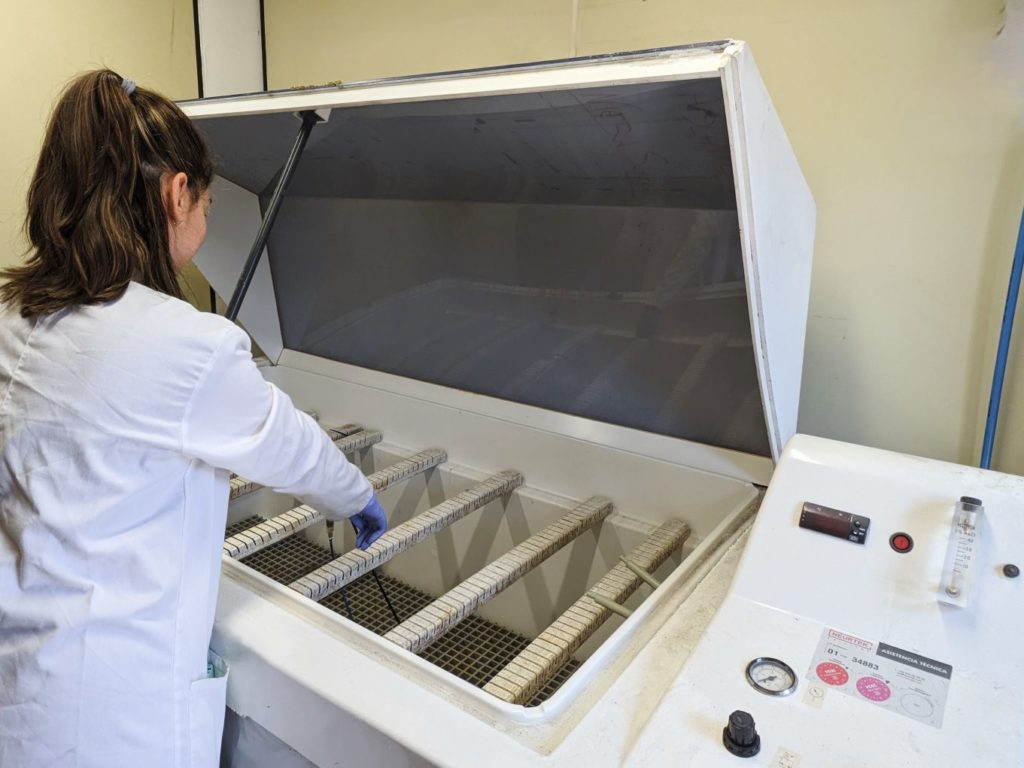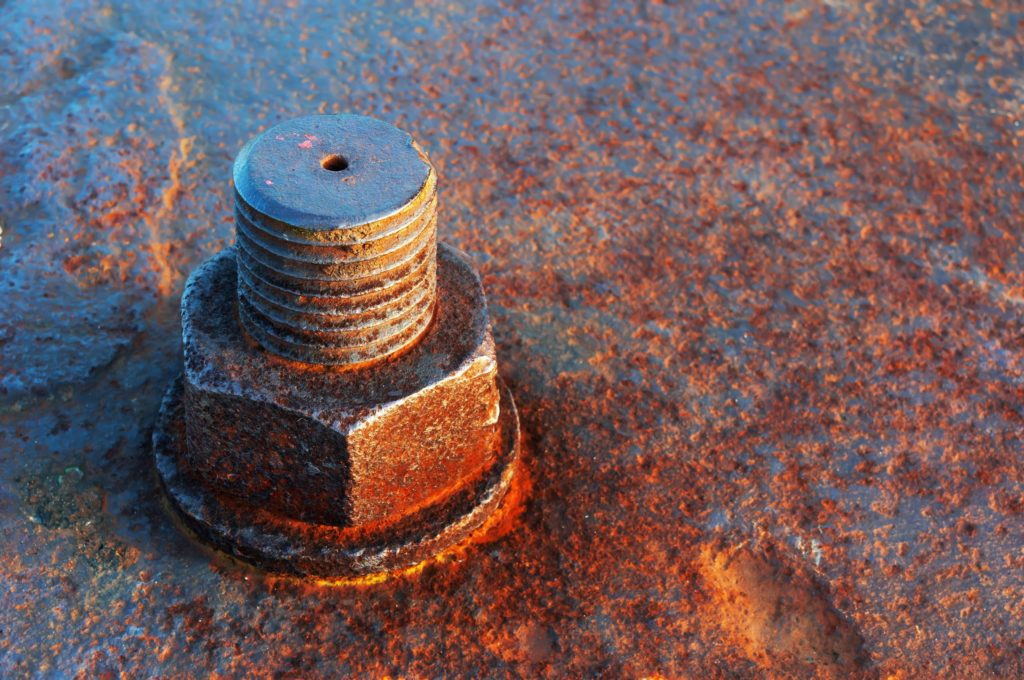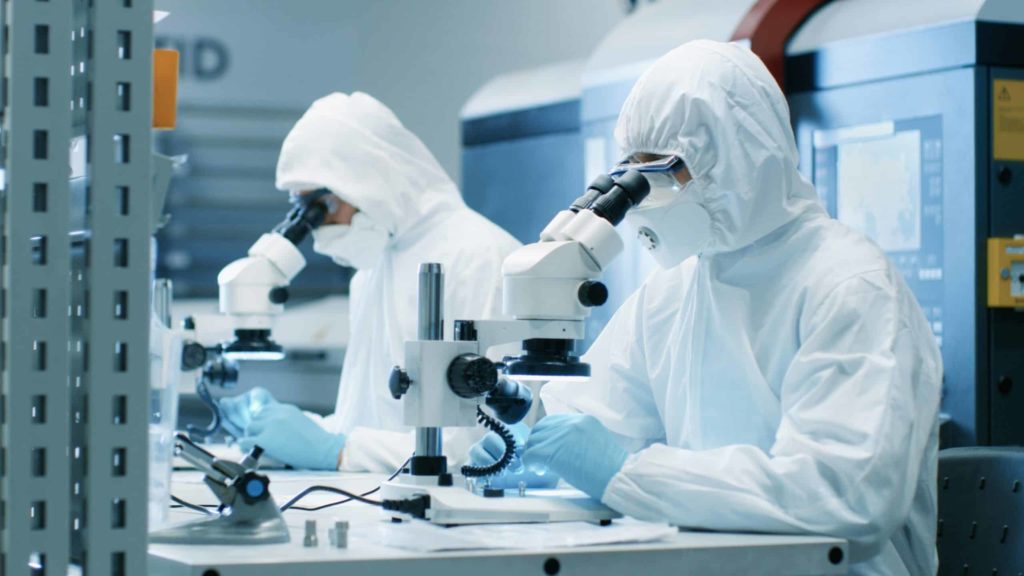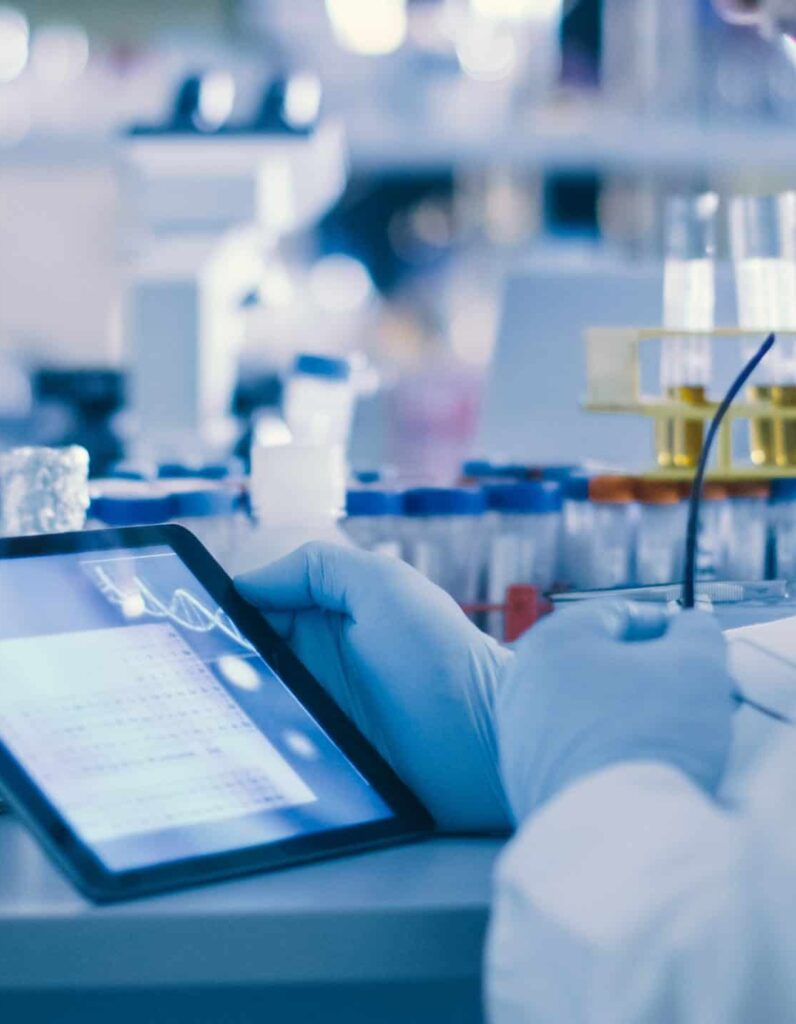Corrosion assessment and protection
Corrosion testing is very important in the chemical industry to determine the degree of corrosion resistance of materials and to improve their performance. This is essential to avoid accidents, saving large sums of money in damages and repairs.
In Infinitia Industrial Consulting we have the most advanced technical equipment to perform the most accurate tests and trials in relation to the corrosion of metals. A work that, in addition, will be validated by the extensive experience of our professionals.
What is corrosion?
Corrosion is an electrochemical oxidation process caused by the interaction between different materials and the environment. Corrosion causes gradual wear of a wide variety of surfaces over time, with particular damage to metallic elements.
The phenomenon is caused by chemical differences between metals and their environment, which results in a transfer of electrons from the material affected by corrosion to the oxidizing agent. This exchange generates a progressive deterioration in a multitude of devices and infrastructures, with the risk that this entails for the well-being of people.


Which materials are affected by corrosion?
The materials most affected by corrosion are metals. However, they do not all suffer equally. While substances such as iron, steel or copper are quickly damaged, precious metals such as gold, platinum or silver are hardly or only very slowly affected.
In practice, corrosion usually starts with the action of air and moisture, but can also be caused by direct contact between chemical components. In addition, some materials such as aluminum or stainless steel are involved in passivation processes when they come into contact with the environment, forming an oxide layer around them that protects their structure from corrosive effects.
What does a corrosion test consist of?
Corrosion tests are experimental procedures (mainly related to forensic engineering) in which certain samples are artificially exposed to extreme corrosive conditions. The aim is to estimate the degree of resistance of substances to different environmental scenarios.
The main corrosive agent in nature is oxygen, but there are others such as carbon dioxide, carbon monoxide, hydrogen, chlorine or sulfur. High temperatures, the degree of salinity or the exposure time also contribute to accelerate corrosion. Testing laboratories take all these variables into account when calculating the reliability of materials.

What types of corrosion tests are performed in laboratories?
Salt spray corrosion tests
For a specific period of time and at a constant temperature, the materials are subjected to environments sprayed with controlled concentrations of sodium chloride. These tests are regulated by ISO 9227.
Corrosion tests in urban atmosphere
Also known as Kesternich tests, they simulate the environmental pollution conditions of cities by introducing substances into concentrated spaces with sulfur dioxide. They are governed by the ISO 22479 standard.
In this type of test, samples interact with humid environments loaded with hot air saturated with water vapor, which condenses continuously or intermittently. They are regulated by the ISO 6270 family of standards.
Electrochemical corrosion resistance tests with potentiostat have clear advantages compared to traditional methods such as salt spray, such as reduced test time and increased reproducibility, obtaining quantitative and objective results. They are established according to ISO 17475:2005.

When are corrosion tests applied?
It is most efficient to incorporate testing into the product manufacturing chain, as it allows estimating the lifetime of corrosion-affected materials, making design improvements and choosing the most reliable components. This is crucial in sectors such as aeronautical engineering, the automotive industry and construction. It also helps to avoid future problems caused by corrosion, which can lead to more serious effects (where forensic engineering would be necessary).
The tests function as a quality control mechanism capable of detecting failures, comparing materials and defining which are the most suitable for each environment. They also serve to study the performance of various corrosive processes such as uniform corrosion, intergranular corrosion or pitting corrosion.
In summary, corrosion tests are used to determine the quality and durability of the passive or protective layers of metals such as steel, aluminum, titanium, lead or copper. Alloys composed of chromium, tin, nickel, magnetite and manganese, iron and zinc phosphates can also be tested. Non-metallic components such as special varnishes, anti-corrosion paints, PVC plastics, enamels and ceramic elements are also evaluated.
Contact with us
Contact us for more information or, if you prefer, you can use one of our other technical consultancies with complementary services to boost your project.
